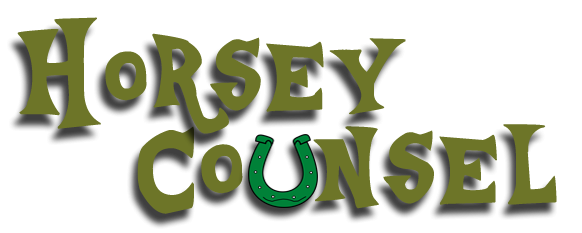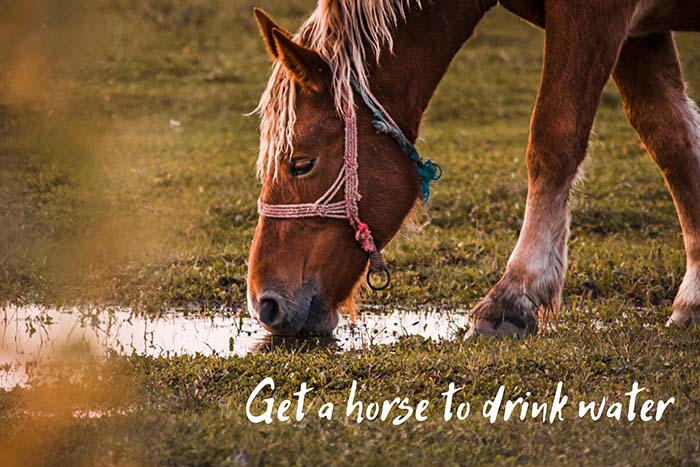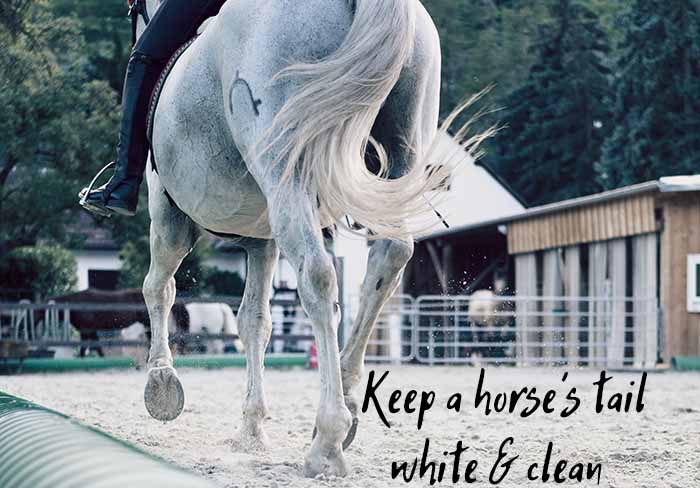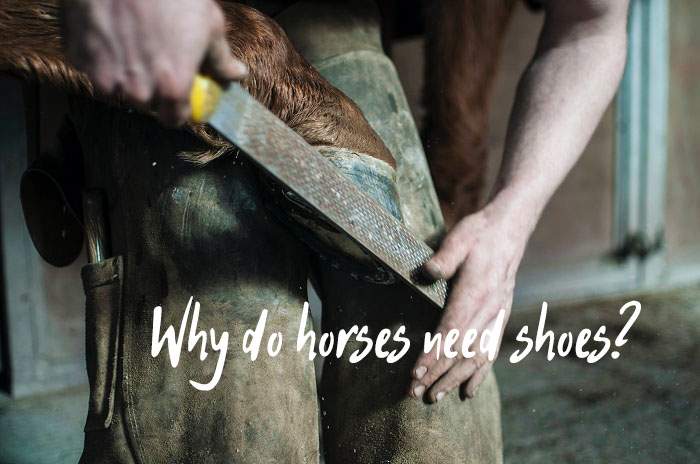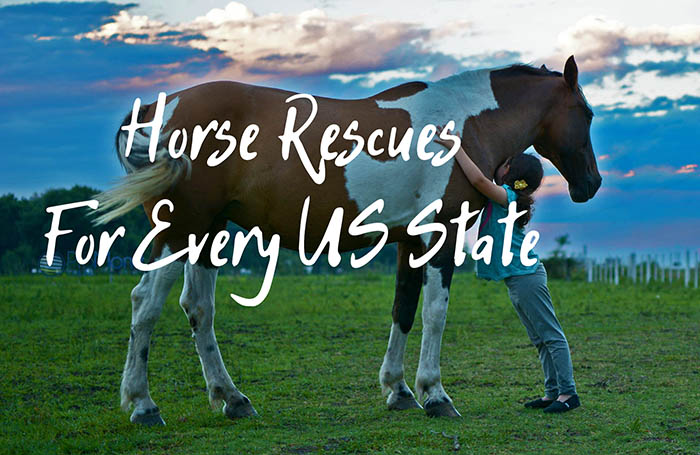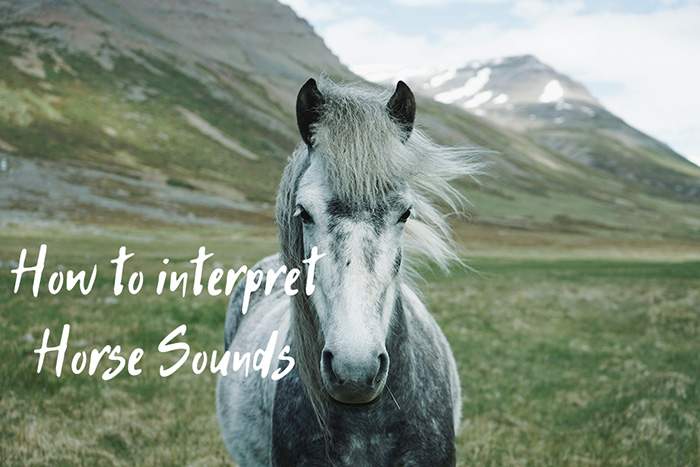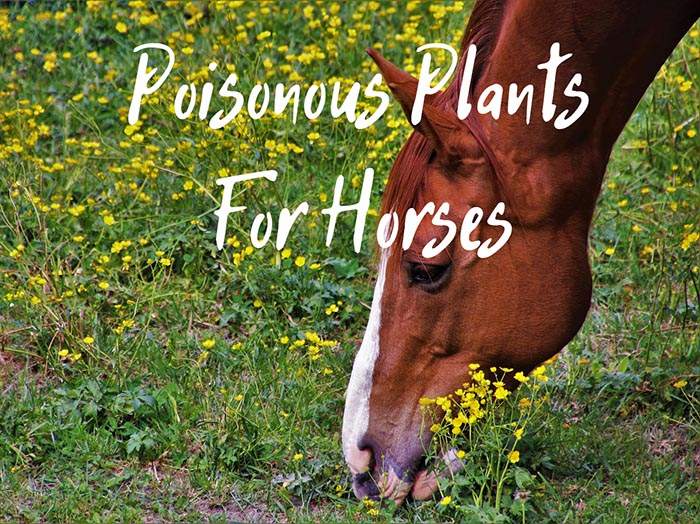How Do Horses Sleep & How Can You Help Yours Sleep Better
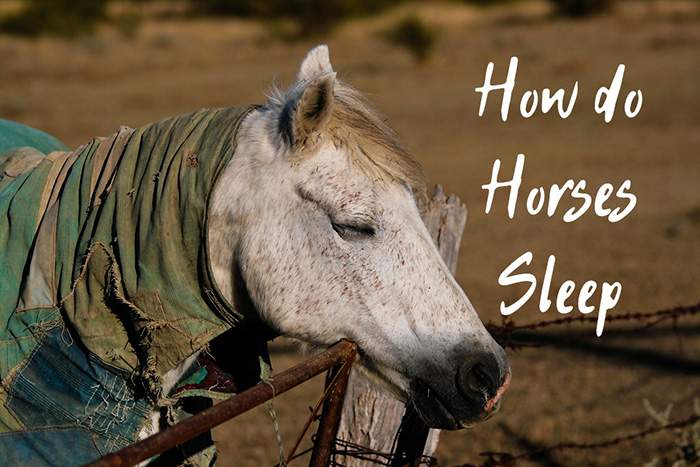
Horses need sleep just like most mammals, but they way they go about it and their sleeping patterns are quite complex and often misunderstood. I feel like it’s important to mention from the start that horses sleep both standing up and lying down, often relying on a mix of the two in order to achieve rest.
As a horse owner, you’ll want to know your horse’s sleeping habits and you’ll want to make sure that it gets adequate rest. In this article, I’ll tell you everything you need to know about horse sleep and how to make sure that your equine companion is able to get the rest that it needs every single day.
How do horses sleep?
As I mentioned before, horses rely on a combination of sleeping while standing up and lying down. Most of the time, they will enter a light rest mode while standing up. The reason horses have evolved to sleep while standing has everything to do with how they lived in the wild.
You see, horses are prey animals in the wild, which means that they are vulnerable to predators. As you can probably imagine, sleeping while standing makes a horse much less vulnerable to a predator than sleeping on the ground would. Waking up and getting up to run takes a few precious seconds, which could cost a wild horse its life.
However, it’s important to know that a horse will never go into a deep sleep while it is standing up. That’s not to say that it doesn’t need deep sleep, just that it isn’t capable of dozing off completely while standing. Again, since the horse is a prey animal, it gets its sleep through many shorts periods of rest.
In standing rest, a horse could spend somewhere between four to 15 hours per day, but it will only lie down from a few minutes to a few hours. The actual sleep time, however, ranges between a few minutes and two hours. In 24 hours, your horse will only need about two and a half hours of actual sleep. The horse will divide this sleep time throughout the day, making sure to doze off in short intervals of about 15 minutes each.
In those 15 minutes, five minutes will usually be five minutes of slow-wave sleep (stage three of non-rapid eye movement sleep), followed by five minutes of REM (rapid eye movement) sleep and another 5 minutes of slow-wave.
What happens if a horse doesn’t get enough sleep?
When it comes to REM sleep, horses can only enter this state if they lie down. That’s probably the main reason why they lie down in the first place: to achieve REM sleep. They will only need to lie down for an hour or two every few days in order to meet their requirements. Still, if a horse doesn’t get enough REM sleep, it could have dire consequences for its health.
One symptom of sleep deprivation in horses involves a sudden collapse, as the animal will enter REM sleep involuntarily while still standing. This is a rare occurrence, however. Some horses also suffer from narcolepsy, which is a decreased ability to regulate sleep-wake cycles.
In general, horses are more relaxed and rest better when they are around other horses. That’s because, in the wild, some of them would take turns staying awake and watching out for predators while the others could sleep. A lone horse will have a much harder time resting properly, as its instinct would cause it to stay alert.
How can you tell if your horse is sleeping?
Since your horse will doze off while standing most of the time, it’s important to know exactly how does a horse rest without falling over or losing balance. Horses have something called a stay apparatus, which allows the knee cap from one hind leg to pop out of place and lock the leg in position. The other leg will just remain in a normal position, so the stay apparatus only locks up one leg at a time.
Detecting when a horse has engaged its stay apparatus can be tricky at a glance, but more often than not, the horse will appear to be leaning on one side. There are other things you can look out for, though. For instance, the horse will drop its weight on its two forelegs, and the relaxing hind leg, the one not engaged by the stay apparatus, will have the hoof resting on the toe.
As for the head and the neck, they will hang or limp slightly, and the horse will have its eyes closed. The ears will be relaxed, and the lower lip might drop a bit or even twitch at times.
If you notice these signs, just let your equine friend rest.
What can you do to help your horse sleep better?
It isn’t much you can do to increase the quality of your horse’s sleep. You can make sure that you don’t disturb it too often while it’s enjoying its frequent naps, but perhaps the most important thing you can do is to ensure proper sleeping conditions.
Now we know that horses only go into REM sleep when they lie down, but a horse won’t lie down unless it feels safe. What you can do is prepare a nice, dry, and sheltered area for your horse to sleep in. A shed or a barn will usually do the trick nicely.
Horses instinctively fear predators even when there are none around. That’s why it is incredibly important for them to feel safe while sleeping. Moreover, make sure that the aforementioned barn or shed is spacious enough to allow your friend to stretch a bit while lying down.
Common sleeping habits in horses.
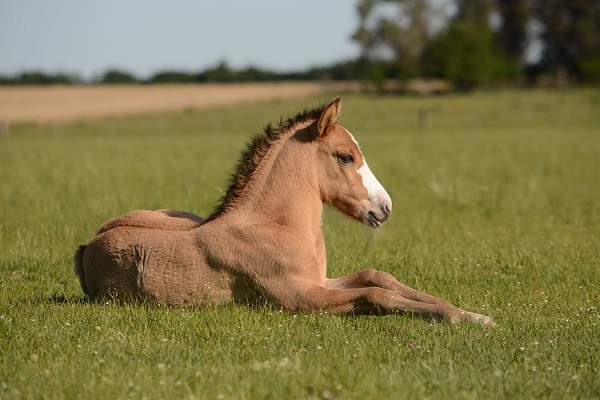
Not all horses sleep for the same amount of time or at the same time of day. Some of them prefer to nap only at night while others will do it during the day as well. Furthermore, it’s well-known that young horses will generally sleep more than adult ones. As for older ones, they will tend to doze off more often.
When the sun is out and it’s a beautiful summer’s day out, a group of horses might lie down and sunbathe while enjoying a nap. One or two will always stand up and “watch the perimeter,” though. They just evolved to look out for each other.
During wintertime, equines don’t generally lie down in the snow, but some will do it if the sun is up in the sky. Some of them have adapted better to cold weather, which is why they won’t mind the snow as much.
Do horses dream when they sleep?
I’ve looked closely at my horses while they slept and I caught them making strange sounds such as whickering and whinnying. They also moved their legs and tails slightly while they slept, which seems to indicate that they indeed dream.
So far, we have no idea what horses dream of, but it’s likely that their teams are related to their life experiences and their surroundings. Maybe they even dream of us, their keepers. I know I sometimes have dreams of my horses, and I kind of hope I appear in their dreams as well sometimes.
Conclusion.
If you read this article carefully, you now have a much better understanding of horse sleeping habits. You now know exactly how to identify a sleeping horse, and what to do to make sure that your own equine companion is able to get enough rest. Their sleeping habits might seem confusing or even chaotic for some of us, but somehow they manage to make do just fine.
If you have anything to add, or if you’d like to share some of your own experiences, feel free to get in touch.
